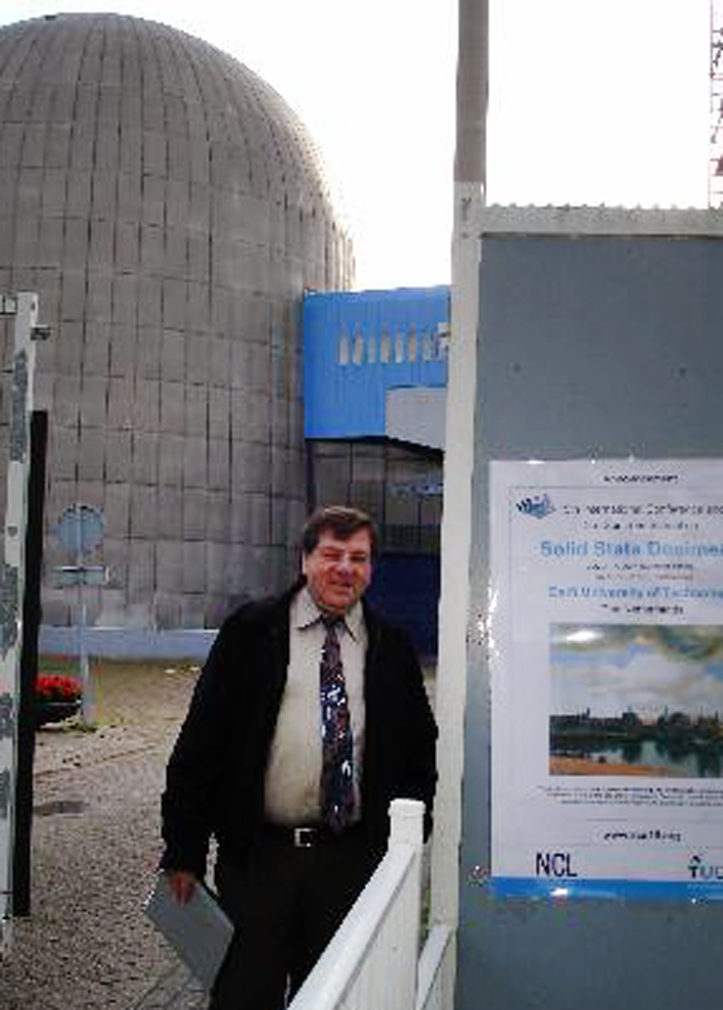In Memoriam: Marko Moscovitch, PhD
1953-2013
by David A. Schauer, CHP, Adjunct Associate Professor, Timothy J. Jorgensen, Associate Professor Department of Radiation Medicine, Georgetown University Medical Center

It is with heavy hearts that we report the passing of our great friend and colleague, Dr. Marko Moscovitch. Marko was born on 30 December 1953 and died on 30 January 2013 following a brief battle against pancreatic cancer. He is survived by his wife, Jacky Arrowsmith, their son Eitan, and Ben and Keren from his previous marriage.
Dr. Moscovitch was a professor in the Department of Radiation Medicine at the Georgetown University Lombardi Comprehensive Cancer Center. He had a secondary appointment in biochemistry and molecular biology. Marko also chaired the graduate program in health physics and radiation protection. He held this position since 1990, when he replaced Dr. Kenneth Mossman.
Marko was internationally recognized as an expert in radiation detection and measurements who sought to improve the ways in which we measure the risk of exposure to low radiation levels. He was known for his work in neutron radiation dosimetry, thermoluminescence, and theoretical radiation physics. In the wake of the March 2011 earthquake and tsunami in Japan, and the ensuing Fukushima Daiichi nuclear disaster, Marko was among those to whom the media turned to make sense of the disaster and the risk.
Through the years, Marko's research into the development of new radiation-detection technologies was supported by grants from the National Aeronautics and Space Administration and the Department of Energy. He authored or coauthored more than 70 peer-reviewed publications and received 11 U.S. patents for his work. He was the chairman of the American National Standards Institute Environmental Dosimetry Standards working group and a member of the editorial boards of Radiation Protection Dosimetry and Radiation Measurements.
Marko was as an inspiring scientist and educator who could make even the most complex physics intelligible and accessible to his colleagues and students. He was always a strong proponent of Georgetown University who mentored his students with concern for all of their needs, attempting to accommodate their particular life circumstances whenever he could. He will be sorely missed.




